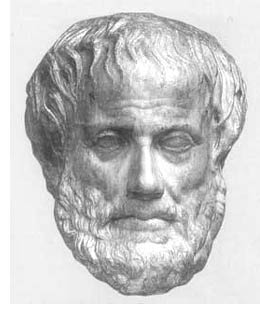Concepts
- ius civile, ius gentium, and ius naturale - the ius civile ("citizen law", originally ius civile Quiritium) was the body of common laws that applied to Roman citizens and the Praetores Urbani, the individuals who had jurisdiction over cases involving citizens. The ius gentium ("law of peoples") was the body of common laws that applied to foreigners, and their dealings with Roman citizens. The Praetores Peregrini were the individuals who had jurisdiction over cases involving citizens and foreigners. Ius naturale was a concept the jurists developed to explain why all people seemed to obey some laws. Their answer was that a "natural law" instilled in all beings a common sense.
- ius scriptum and ius non scriptum - the terms ius scriptum and ius non scriptum literally mean written and unwritten law, respectively. In practice, the two differed by the means of their creation and not necessarily whether or not they were written down. The ius scriptum was the body of statute laws made by the legislature. The laws were known as leges (lit. "laws") and plebiscita (lit. "plebiscites," originating in the Plebeian Council). Roman lawyers would also include in the ius scriptum the edicts of magistrates (magistratuum edicta), the advice of the Senate (Senatus consulta), the responses and thoughts of jurists (responsa prudentium), and the proclamations and beliefs of the emperor (principum placita). Ius non scriptum was the body of common laws that arose from customary practice and had become binding over time.
- ius commune and ius singulare - Ius singulare (singular law) is special law for certain groups of people, things, or legal relations (because of which it is an exception from the general principles of the legal system), unlike general, ordinary, law (ius commune). An example of this is the law about wills written by people in the military during a campaign, which are exempt of the solemnities generally required for citizens when writing wills in normal circumstances.
- ius publicum and ius privatum - ius publicum means public law and ius privatum means private law, where public law is to protect the interests of the Roman state while private law should protect individuals. In the Roman law ius privatum included personal, property, civil and criminal law; judicial proceeding was private process (iudicium privatum); and crimes were private (except the most severe ones that were prosecuted by the state). Public law will only include some areas of private law close to the end of the Roman state. Ius publicum was also used to describe obligatory legal regulations (today called ius cogens—this term is applied in modern international law to indicate peremptory norms that cannot be derogated from) These are regulations that cannot be changed or excluded by party agreement. Those regulations that can be changed are called today ius dispositivum, and they are used when party shares something and are not in opposition.
Public law

The Roman Republic's constitution or mos maiorum ("custom of the ancestors") was an unwritten set of guidelines and principles passed down mainly through precedent. Concepts that originated in the Roman constitution live on in constitutions to this day. Examples include checks and balances, the separation of powers, vetoes, filibusters, quorum requirements, term limits, impeachments, the powers of the purse, and regularly scheduled elections. Even some lesser used modern constitutional concepts, such as the block voting found in the electoral college of the United States, originate from ideas found in the Roman constitution.
The constitution of the Roman Republic was not formal or even official. Its constitution was largely unwritten, and was constantly evolving throughout the life of the republic. Throughout the 1st century BC, the power and legitimacy of the Roman constitution was progressively eroding. Even Roman constitutionalists, such as the senator Cicero, lost a willingness to remain faithful to it towards the end of the republic. When the Roman Republic ultimately fell in the years following the Battle of Actium and Mark Antony's suicide, what was left of the Roman constitution died along with the republic. The first Roman Emperor, Augustus, attempted to manufacture the appearance of a constitution that still governed the empire. The belief in a surviving constitution lasted well into the life of the Roman Empire.
Private law

Stipulatio was the basic form of contract in Roman law. It was made in the format of question and answer. The precise nature of the contract was disputed, as can be seen below.
Rei vindicatio is a legal action by which the plaintiff demands that the defendant return a thing that belongs to the plaintiff. It may only be used when plaintiff owns the thing, and the defendant is somehow impeding the plaintiff's possession of the thing. The plaintiff could also institute an actio furti (a personal action) in order to punish the defendant. If the thing could not be recovered, the plaintiff could claim damages from the defendant with the aid of the condictio furtiva (a personal action). With the aid of the actio legis Aquiliae (a personal action), the plaintiff could claim damages from the defendant. Rei vindicatio was derived from the ius civile, therefore was only available to Roman citizens.
Roman status
To describe a person's position in the legal system, Romans mostly used the expression status. The individual could have been a Roman citizen (status civitatis) unlike foreigners, or he could have been free (status libertatis) unlike slaves, or he could have had a certain position in a Roman family (status familiae) either as the head of the family (pater familias), or some lower member.
Roman litigation
Ancient Rome had no public prosecution service, like the Crown Prosecution Service, so individual citizens had to bring cases themselves, usually for little or no financial reward. However, politicians often brought these cases, as to do so was seen as a public service. Early on, this was done by means of a verbal summons, rather than a written indictment. However, later, cases could be initiated through a written method. After the case was initiated, a judge was appointed and the outcome of the case was decided.
During the republic and until the bureaucratization of Roman judicial procedure, the judge was usually a private person (iudex privatus). He had to be a Roman male citizen. The parties could agree on a judge, or they could appoint one from a list, called album iudicum. They went down the list until they found a judge agreeable to both parties, or if none could be found they had to take the last one on the list. For cases of great public interest, there was a tribunal with five judges. First, the parties selected seven from a list, and from those seven the five were chosen randomly. They were called recuperatores.
No-one had a legal obligation to judge a case, which was understood to be a burden. However, there was a moral obligation to do so, what was known as "officium". The judge had great latitude in the way he conducted the litigation. He considered all the evidence and ruled in the way that seemed just. Because the judge was not a jurist or a legal technician, he often consulted a jurist about the technical aspects of the case, but he was not bound by the jurist's reply. At the end of the litigation, if things were not clear to him, he could refuse to give a judgment, by swearing that it wasn't clear. Also, there was a maximum time to issue a judgment, which depended on some technical issues (type of action, etc).
Later on, with the bureaucratization, this procedure disappeared, and was substituted by the so-called "extra ordinem" procedure, also known as cognitory. The whole case was reviewed before a magistrate, in a single phase. The magistrate had obligation to judge and to issue a decision, and the decision could be appealed to a higher magistrate.


No comments:
Post a Comment